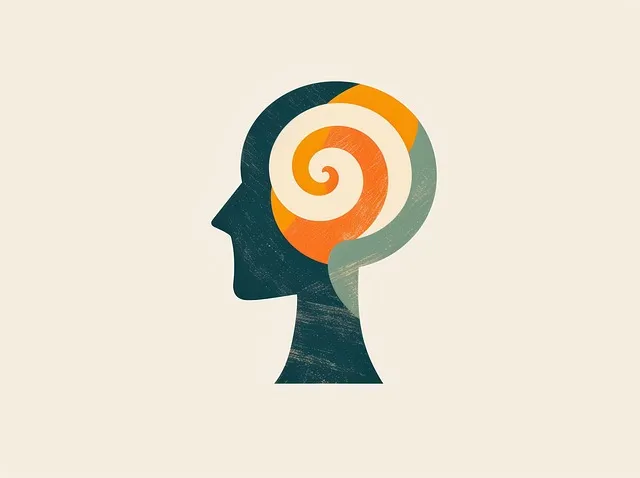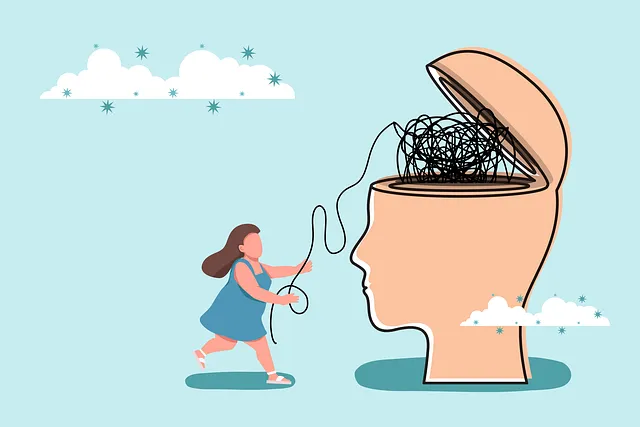Depression is a serious mental health condition requiring early intervention. Kaiser Englewood offers accessible services including therapy, counseling, support groups, and mindfulness meditation. Their holistic approach includes individual and group therapy tailored to diverse needs, with a focus on cultural competency. Preventive strategies emphasize exercise, diet, sleep, and stress management. Evidence-based therapies like CBT and mindfulness are key. Building a strong support network is vital, along with burnout prevention for healthcare providers. Kaiser Englewood provides resources for accessing mental health services, promoting overall well-being, and fostering healthier communities.
Depression is a common yet serious condition affecting millions worldwide. Recognizing its signs and understanding prevention strategies is crucial for managing and overcoming this challenge. This article guides you through various aspects of depression prevention, from recognizing symptoms to accessing mental health services through Kaiser Englewood. We explore lifestyle changes, evidence-based therapies, and building supportive networks, offering practical steps towards better mental well-being. Learn how these strategies can empower you or a loved one in the fight against depression.
- Understanding Depression: Recognizing Signs and Symptoms
- Kaiser Englewood: Accessing Mental Health Services and Support
- Lifestyle Changes for Better Mental Well-being
- Evidence-based Therapies and Treatment Options
- Building a Support Network: Connections for Overcoming Depression
Understanding Depression: Recognizing Signs and Symptoms

Depression is a common yet serious mental health condition that significantly impacts an individual’s daily life and overall well-being. Recognizing the signs and symptoms early on is crucial in preventing depression from escalating. Individuals may experience a persistent feeling of sadness, hopelessness, or loss of interest in activities they once enjoyed. Changes in appetite, sleep patterns, energy levels, and concentration are also common indicators.
If you or someone close to you is showing these signs, it’s essential to seek support. Kaiser Englewood offers accessible mental health services through its comprehensive network. They provide various resources, including therapy options, counseling, and support groups, which can be a great starting point for those dealing with depression. Additionally, exploring strategies like mindfulness meditation, as highlighted in Mental Health Policy Analysis and Advocacy, has been shown to aid in preventing and managing depressive episodes. Communication strategies, another key aspect of mental health promotion, encourage open discussions about mental wellness, fostering an environment where individuals feel comfortable reaching out for help.
Kaiser Englewood: Accessing Mental Health Services and Support

At Kaiser Englewood, individuals seeking mental health support have access to comprehensive services tailored to their unique needs. The healthcare provider offers a range of options, including individual therapy, group counseling sessions, and specialized programs aimed at preventing and managing depression. One notable initiative is the Community Outreach Program Implementation, which focuses on educating and connecting high-risk populations with necessary resources. This program highlights Kaiser Englewood’s commitment to addressing mental health disparities within the community.
Additionally, the hospital emphasizes the importance of cultural competency training for its staff, ensuring that every patient receives respectful and sensitive care. Incorporating practices like Mindfulness Meditation into treatment plans further demonstrates their holistic approach. By combining evidence-based interventions with culturally responsive care, Kaiser Englewood strives to create an inclusive environment where individuals can actively participate in their mental well-being journey.
Lifestyle Changes for Better Mental Well-being

Maintaining a healthy lifestyle is an essential aspect of depression prevention and promoting overall mental well-being. Regular exercise, for instance, has been proven to be a powerful tool in combating depressive symptoms. Engaging in activities like walking, jogging, or yoga can increase serotonin levels, boost mood, and reduce stress hormones. Additionally, adopting a balanced diet rich in nutrients supports brain health and emotional healing processes.
A good sleep routine is another crucial component of mental health. Aim for 7-9 hours of uninterrupted sleep each night to allow your mind and body to rest and recover. Managing stress through techniques like meditation or deep breathing exercises can also help alleviate anxiety relief and improve self-esteem. Remember, seeking support from mental health professionals, such as those available at Kaiser Englewood, is a proactive step towards getting the necessary mental health services and navigating any challenges with depression effectively.
Evidence-based Therapies and Treatment Options

Depression prevention strategies often revolve around evidence-based therapies and treatment options that have proven effective in managing and mitigating depressive symptoms. One crucial approach is cognitive-behavioral therapy (CBT), which helps individuals identify and change negative thought patterns and behaviors contributing to depression. Additionally, mindfulness-based interventions, like meditation and stress reduction methods, have gained prominence for their ability to foster mental wellness coaching programs development. These techniques encourage present-moment awareness and emotional regulation, crucial elements in preventing relapses.
For those seeking how to get mental health services through Kaiser Englewood, various options are available. This includes individual therapy sessions with licensed professionals who can provide personalized treatment plans. Group therapy and support networks are also beneficial, fostering a sense of community and understanding among individuals navigating similar challenges. Furthermore, burnout prevention strategies for healthcare providers are essential, as they can inadvertently contribute to their own mental health issues. By incorporating evidence-based practices into their routines, both patients and healthcare professionals can enhance their overall well-being, ensuring a proactive approach to depression prevention.
Building a Support Network: Connections for Overcoming Depression

Building a strong support network is an essential strategy in preventing and managing depression. Connections with loved ones, friends, or even support groups can offer a sense of belonging and help reduce feelings of isolation. If you’re wondering how to get mental health services, consider reaching out to your healthcare provider at Kaiser Englewood for guidance and resources. They can provide valuable information on accessing specialized care and various therapeutic options.
The power of social connections is especially relevant in today’s fast-paced world where burnout prevention strategies are crucial, particularly for healthcare providers. Many organizations now offer Cultural Competency Training to improve the way mental health services are delivered. Additionally, simple practices like Mental Wellness Journaling Exercises can be empowering tools to enhance self-awareness and promote emotional well-being. These initiatives ensure that individuals facing depression receive the necessary support, fostering a healthier and more supportive environment.
Depression is a formidable challenge, but with the right strategies, prevention and recovery are achievable. By understanding depression’s signs and symptoms, making lifestyle changes, exploring evidence-based therapies, and building a robust support network, individuals can take significant steps towards better mental well-being. For those seeking help, Kaiser Englewood offers accessible mental health services, providing resources for navigating this journey. Remember, addressing depression head-on is the first step towards a brighter, healthier future.






